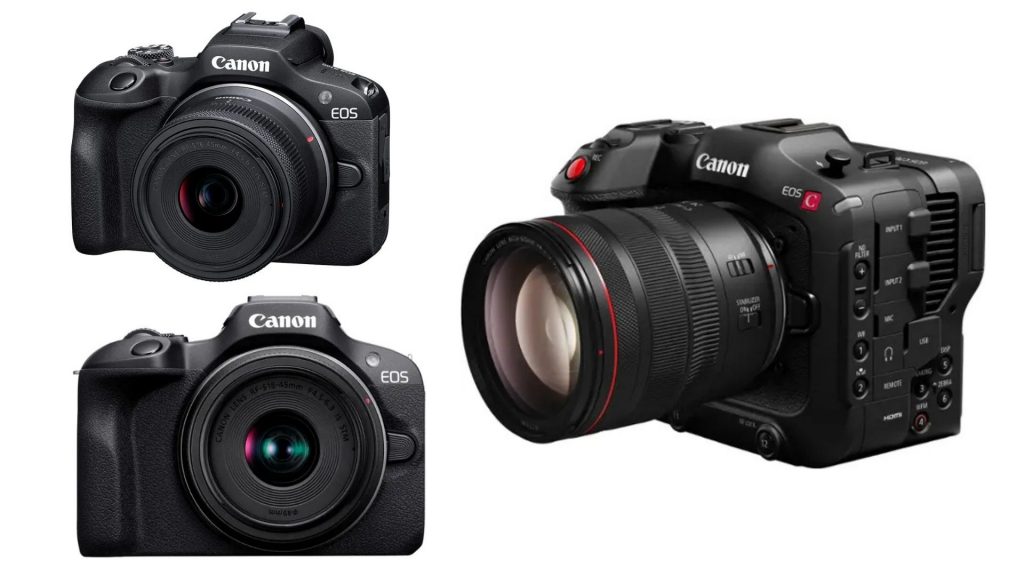Smartphones have advanced significantly in the fields of photography and videography, and are frequently regarded as one-stop shops for preserving life’s most significant events. Because of this, a lot of people question if standalone cameras like my Canon camera that records 4K video are still useful.

While smartphones are undeniably convenient, I still prefer my Canon camera for various reasons. My Canon camera offers features that outperform even the most advanced smartphones, particularly when it comes to 4K video recording. Let me explain why I choose to stick with my Canon camera, despite owning a high-end smartphone.
Why My Canon Camera Outshines Smartphones
The ongoing debate between cameras and smartphones boils down to convenience versus quality. Smartphones are incredibly easy to carry, and they come with an array of apps that allow quick editing and sharing. However, in terms of sheer performance and versatility, my Canon camera with 4K video recording outshines any smartphone.
First and foremost, cameras like my Canon are designed specifically for photography and videography. This means they are built to offer superior image quality, better lenses, and more advanced video-capturing capabilities. Smartphones, on the other hand, prioritize versatility, which often means they sacrifice video and image quality to fit in other functions.
Another key point is the manual control that comes with my Canon camera. Unlike smartphones that mostly rely on automatic settings, a Canon camera allows me to manually adjust settings like aperture, shutter speed, ISO, and white balance, giving me total control over my shot. This level of control is indispensable when creating professional-quality videos, as it allows me to tweak every little detail to get the desired effect.
4K Recording on My Canon Camera
One of the standout features of my Canon camera is its 4K video recording. While many smartphones now offer 4K recording, the quality isn’t the same. 4K video on a smartphone may look great on the phone’s small screen, but when played back on larger displays, the shortcomings become apparent. Video footage from a Canon camera holds up much better on larger screens and maintains its crispness, detail, and clarity.
The Canon camera’s larger sensor size is a key factor in this superior video quality. A larger sensor can capture more light, which results in clearer, brighter, and more detailed footage, especially in low-light conditions. Smartphones, due to their compact size, have much smaller sensors, limiting their ability to perform as well in challenging lighting environments.
The 4K recording on my Canon camera also offers a higher bit rate compared to most smartphones. This translates to higher-quality footage because more data is being captured. This is especially noticeable when filming scenes with a lot of movement or detail, like landscapes or action shots.
The difference in bit rate and detail becomes clear during the editing process. Canon’s 4K footage offers much more flexibility in post-production, allowing me to make adjustments without sacrificing quality.
Canon Camera vs. Smartphone Video Recording
When comparing video recording capabilities, there are several areas where my Canon camera outshines a smartphone. One of the major differences is in lens options. While smartphones have a fixed lens, my Canon camera allows me to swap out lenses depending on what I’m shooting. If I need a wide-angle shot, a macro close-up, or a telephoto view, I can easily switch to the appropriate lens, giving me versatility that no smartphone can match.
Additionally, Canon cameras typically offer better autofocus systems. My Canon camera’s autofocus is faster, more accurate, and can handle a wider variety of shooting conditions than the autofocus found in smartphones. This makes a huge difference when shooting videos that require precise focus, such as interviews or moving subjects. The ability to maintain sharp focus throughout a shot is something that smartphones often struggle with, especially in low-light or complex environments.
Another area where my Canon camera excels is in stabilization. While many smartphones now come with built-in stabilization features, the optical stabilization in Canon cameras is far superior. This results in smoother, more professional-looking footage, even when shooting handheld or on the move. For anyone serious about videography, smooth footage is essential, and Canon’s optical image stabilization is a big reason I stick with my camera over my smartphone.
Sticking with My Canon Camera
There’s no denying that smartphones are convenient. They’re compact, always on hand, and make it easy to capture spur-of-the-moment videos. But when I’m working on a video project where quality is a priority, I always turn to my Canon camera. The difference in quality is simply too significant to overlook, especially when the goal is to create professional content.
Battery life is another area where my Canon camera beats smartphones. While my phone’s battery drains quickly when shooting 4K video, my Canon camera is built to handle long video sessions without running out of juice. With spare batteries on hand, I can film for hours without interruption, something that’s just not possible with a smartphone.
The ergonomics of my Canon camera are also superior to a smartphone. Holding a smartphone for extended periods while filming can get uncomfortable. Cameras like my Canon are designed to be held comfortably for long shooting sessions. The grip, button placement, and overall build make the experience much more pleasant, allowing me to focus on getting the perfect shot rather than worrying about my hand cramping.
Finally, my Canon camera’s durability makes it a better choice for outdoor shoots or projects in less-than-ideal conditions. Many Canon cameras are weather-sealed and built to withstand dust, moisture, and rough handling. In contrast, most smartphones are delicate and can be damaged easily if dropped or exposed to the elements. When I’m filming outdoors or in unpredictable weather, I trust my Canon camera to get the job done.
Why 4K Video on My Canon Camera Beats Smartphone Alternatives
The rise of smartphones has made 4K video more accessible, but my Canon camera is still the superior choice for serious videography. It captures higher-quality footage with more detail, and color, and performs better in low light. It records 4K video at a higher bit rate, preserving more detail and reducing compression artifacts.
Additionally, it allows for the use of external microphones, making audio just as professional as the video. The footage is easier to work with during post-production, and the overall versatility of the camera makes it suitable for various projects.
Conclusion
Smartphones have undoubtedly transformed the way we capture video, making it more accessible and convenient. However, when it comes to professional-grade video recording, my Canon camera with 4K video recording is still my go-to choice.
The superior image quality, manual controls, better lenses, and advanced features make it the perfect tool for creating high-quality content. While smartphones have their place in casual shooting, for serious projects where quality matters, I’ll always prefer my Canon camera.
Whether it’s the higher bit rate, superior autofocus, or the flexibility to swap lenses, my Canon camera consistently delivers the results I’m looking for. In the end, investing in a dedicated camera like my Canon is the best way to ensure you’re getting the best possible footage, and for that reason, I’ll continue to choose my Canon over any smartphone.
CHECK THESE OUT:
Wondering What Sony Camera Shoots 8K? Check This Out.
5 Reasons the Sony Camera for Live Streaming is Perfect
Here’s How to Update Sony Camera Firmware Before You Regret It
Here’s Why You Should Consider Buying a Sony Camera Without Rolling Shutter
Discover the Weather Sealed Fujifilm Cameras for All Conditions
